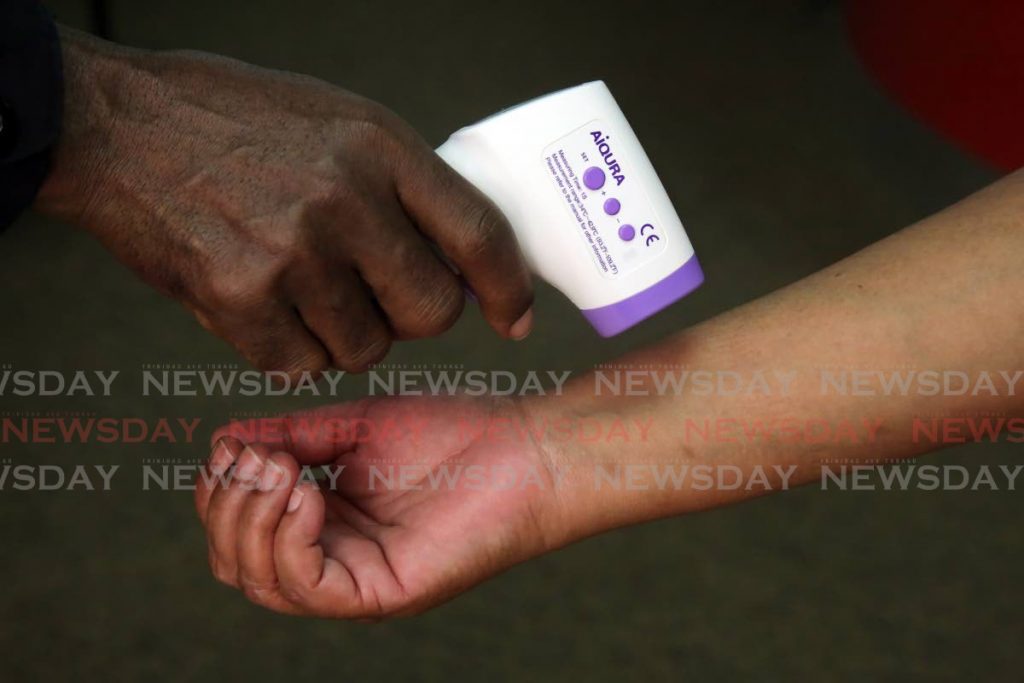Equal opportunity for covid19 long-haulers

Sometime ago I offered some insights into the provisions of the equal opportunity legislation and emphasised the fact that this statute presented workers with two bites of the cherry as it were.
Apart from pursuing a trade dispute under section 51 of the Industrial Relations Act, aggrieved workers could at the same time seek redress before the Equal Opportunities Commission, claiming a breach by the employer of one of the seven areas of violations with respect to the status of that worker as set out in the act.
The current pandemic circumstances have presented the national workforce with a possible unique shield of defence against some rash or misguided decisions that may be taken by certain employers – although the act is a piece of legislation that is at times at the receiving end of dissatisfaction within the legal and industrial relations communities.
The almost universal diagnosis is that, while it may be better than nothing, it is in many cases not far-reaching enough. However, in what may be a rare case of prescience by its drafters, it may turn out to be at the cutting edge as regards offering employees who have recovered from covid19 and how they will reintegrate into the workplace.
Worldwide, the laws that seek to govern employer management of covid19 are in the formative stages and guidelines are ever evolving as our understanding of the virus grows.
Locally, the main statute with respect to legislative health and safety protections for employees is the Occupational Safety and Health Act Chap 88:08. Specifically, section 6 (1) says, “It shall be the duty of every employer to ensure, so far as is reasonably practicable, the safety, health and welfare at work of all his employees.”
However, I want to move the conversation away from the obvious protections and provisions under OSH and take a look at the protections under the Equal Opportunity Act.
The effects of the covid19 virus vary from person to person and manifest in a wide range of symptoms. Apart from the obvious physical effects on the body such as reducing lung function and general muscular weakness, data has emerged that show continuing psychological aftereffects as well as damage and/or defect in both organs and bodily function, now commonly referred to as “long covid.”
It is instructive to look at the meaning of “disability” under this act, which defines it as:
(a) Total or partial loss of a bodily function;
(b) Total or partial loss of a part of the body;
(c) Malfunction of a part of the body, including a mental or psychological disease or disorder; or
(d) Malformation or disfigurement of part of the body.
Therefore, the meaning of "disability" under this definition may certainly capture a post-covid19 employee suffering from long-term symptoms and in certain cases disabilities and reduced function, both physically and mentally. In this regard, I would advise companies to consider their obligations under the Equal Opportunity Act and ensure they make the requisite efforts to accommodate such an employee so as not inadvertently to discriminate against them.
A further condition is that under section 19, an employer cannot discriminate against an employee in the terms or conditions that the employer affords them or by subjecting them to detriment. It would be interesting to see if this is tested in the future.
One of the pressing questions for companies to answer would be if existing medical plans are sufficient, or indeed what medical health plans will even cover. This is an especially pressing issue since we are currently at the point where some companies are refusing to pay for covid tests, even in circumstances where the employee’s exposure was in the workplace.
Some companies may be minded to not allow these long-haul sufferers of covid19 symptoms to return to the workplace and withhold emoluments until the employee is certified fit for duty. Such acts may arguably be considered acts of discrimination and contrary to the Equal Opportunity Act. This certainly brings to mind the ugly period when people infected with the AIDS virus were subtly and in some cases openly and directly discriminated against with respect to employment opportunities.
When treating with long-haulers, employers can be mindful to make sure that their time off, leave, short-term disability and return- to-work policies are aligned to support workers in keeping with business objectives.
Companies should educate supervisors and managers, if not the entire workforce, about the lingering symptoms and emotional toll the virus can have on long-haulers’ overall health. Discussion may even need to be held with medical carriers and other vendor partners (eg, EAP and well-being) about protocols for assessing and supporting members with long-haul symptoms.
I advise companies to make available what benefits are reasonable and can be afforded to reduce the risk of financial impact. Companies should also re-evaluate their return-to-work policies and make reasonable accommodation that may allow employees to return to work on a part-time basis and/or with reduced physical demands- consistent with fit-for-work assessments by physicians.
I also suggest that opportunities be identified to cross-train employees to limit the disruption that may occur when an employee requires time away from work due to long-haul symptoms. This ensures that replacement employees are well trained and can hit the ground running.
Such steps taken by any open-minded and reasonable employer will certainly work in its favour, should the company be confronted with a discrimination complaint.

Comments
"Equal opportunity for covid19 long-haulers"